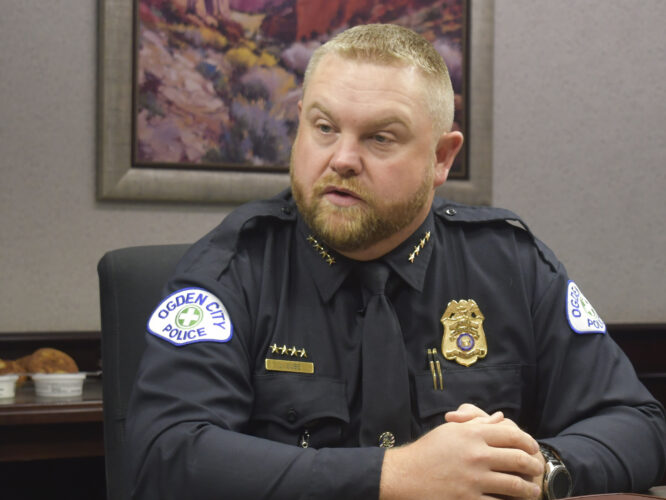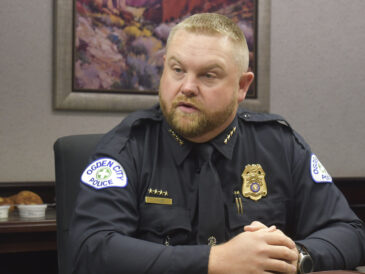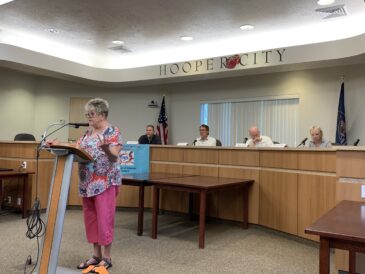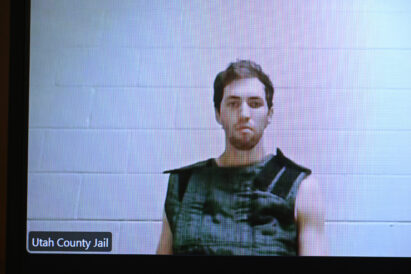OPD Chief discusses event security, learning from incidents

Jared Lloyd, Standard-Examiner
Ogden City Police Chief Jake Sube talks to the editorial board at the Standard-Examiner in Ogden on Wednesday, Sept. 17. 2025.Editor’s note: This is the first of a series of three stories following a Standard-Examiner editorial board interview with Ogden Chief of Police Jake Sube on a broad range of topics, including the public event security, building an attractive job culture, accountability, training for the unthinkable, changing perception of the police and more. Sube was also joined by Ogden Mayor Ben Nadolski during this interview.
OGDEN — In the wake of last week’s murder of Charlie Kirk during an event on the campus of Utah Valley University, the Ogden City Police Department is reflecting on how it helps to secure large events.
Ogden Chief of Police Jake Sube said the agency is certain to take lessons from what happened last week.
“We learn from every scenario,” he said. “This isn’t about looking at how people failed. We learn from everything. One of the most difficult tasks for a law enforcement agency is managing an outdoor event. It’s a nightmare, it’s very difficult and I don’t envy UVU having to have that event there and having it be open-air and doing all of that. I don’t have any critiques on that, but what I will say is it’s a learning opportunity for us.”
He said that in instances where Weber State University has similar outdoor events that attract large crowds, the Ogden Police Department works alongside WSU’s own police department.
“We would be heavily engaged — Ogden City, being the largest police agency with Weber State being inside of that jurisdiction — so we would work in conjunction with Weber State Police Department and offer any and all assistance we can,” he said. “I have a fantastic relationship with Chief (Seth) Cawley at Weber State.”
Earlier this week, Bryan Magaña, public relations director at WSU, provided the Standard-Examiner with a statement on how it approaches guest and event security.
“We take the safety of our campus guests seriously and we’re approaching events as we always do, with public safety top of mind,” he said. “When it comes to security, the university assesses each event individually. We haven’t cancelled any events at this time, but we do have increased police presence this week in light of what happened at Utah Valley University.”
Sube said, off campus, one other recent test of the Ogden Police Department’s ability to secure large public events is a year that has seen several protests ranging from the “No Kings” demonstrations earlier this summer to protests against slashes in the federal workforce.
“We’ve had multiple protests over this past summer,” he said. “They’re outdoor, open events and there’s two sides of those stories. There’s antagonists on both sides, and my fear as the chief is, ‘Are we going to have counter-protesters and what problems are we going to have from that? Are we going to have a situation like the Charlie Kirk situation where there’s somebody in our society we don’t have our sights on yet that is planning something we don’t know?’ So we’re going to over-plan.”
He added that while there is no tolerance for law-breaking or violence at protests, the department will uphold its duties to protect peaceful protest.
“If people want to protest, we’re going to protect them,” he said. “They have that right. We’re an apolitical entity that is going to ensure they have their constitutional rights protected, and the minute somebody infringes on that, we’re going to interject and we’re going to stop it.”
Ogden Mayor Ben Nadolski echoed these sentiments.
“Alignment amongst the mayor and the chief is critical, especially in the times like we’re in,” he said. ” This is a non-partisan moment. This is an apolitical agency and we are here to protect your apolitical constitutional rights. There’s nothing partisan about the Constitution. We also share the message of zero-tolerance for criminal activity.”
Sube added that even when events don’t end with major incidents, the department learns from them.
“We debrief every single one of them,” he said. “Even if there was no problem, we’re going to debrief it and learn, ‘Where were we missing something? Where could we improve or what do we need ot continue with? What was successful’ That’s constant.”



